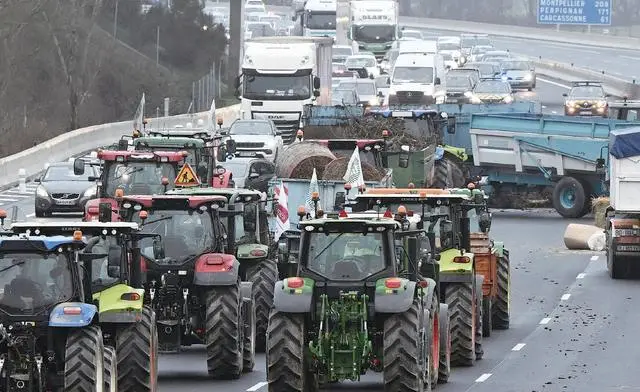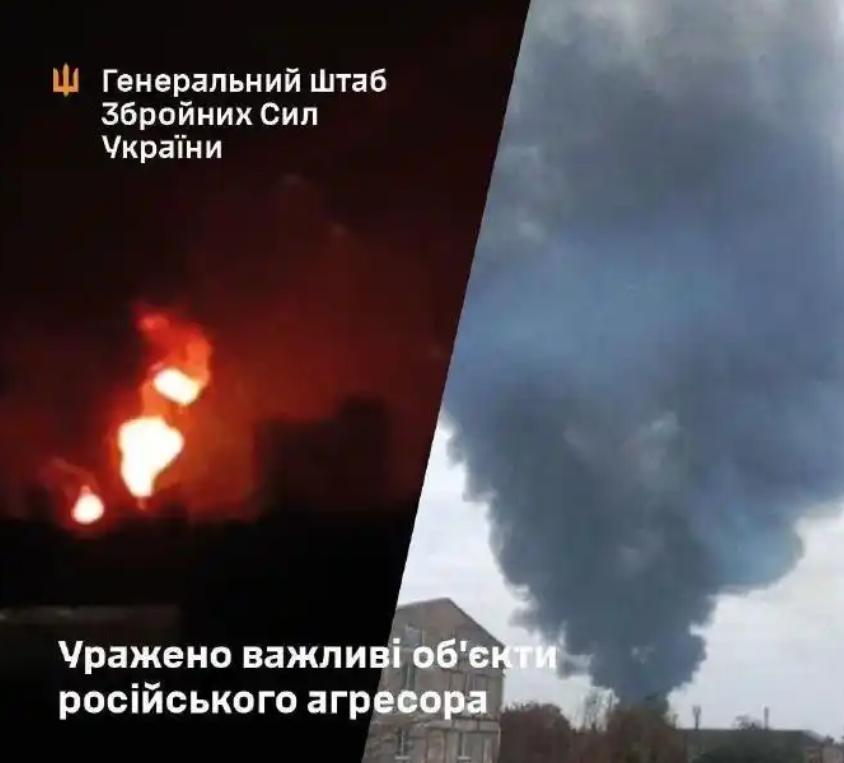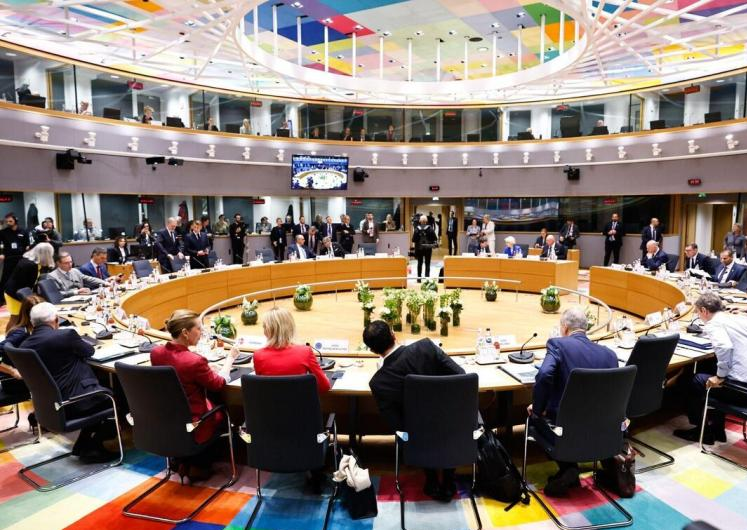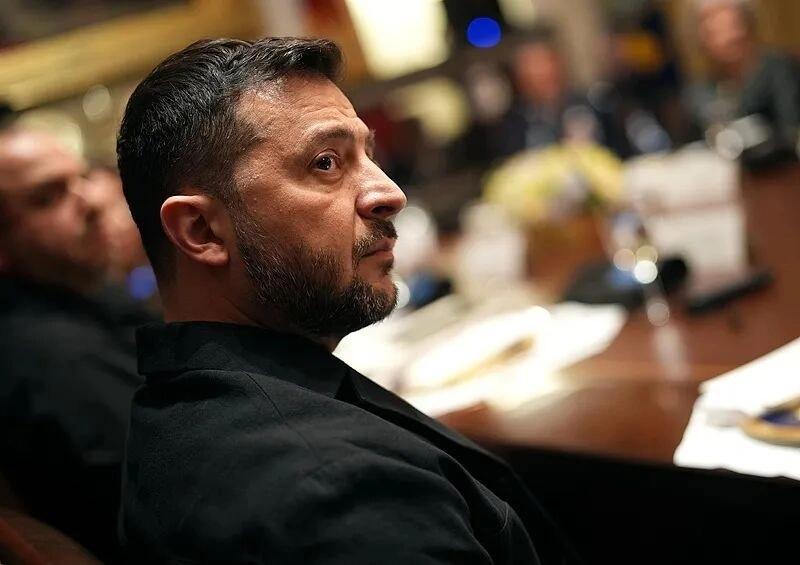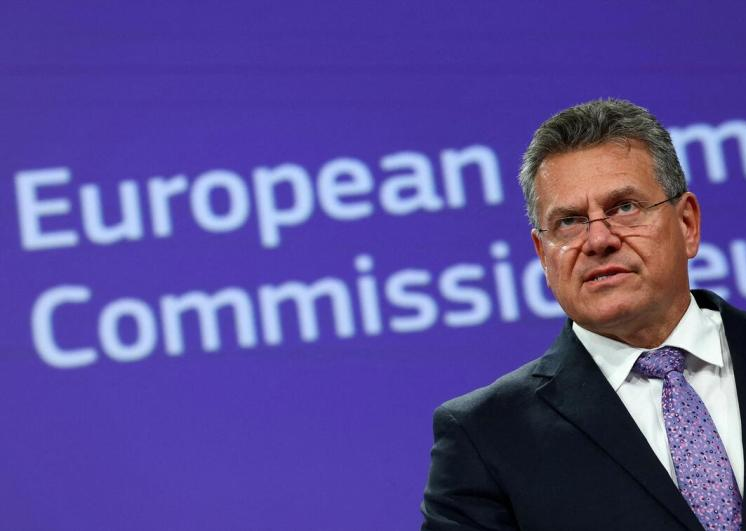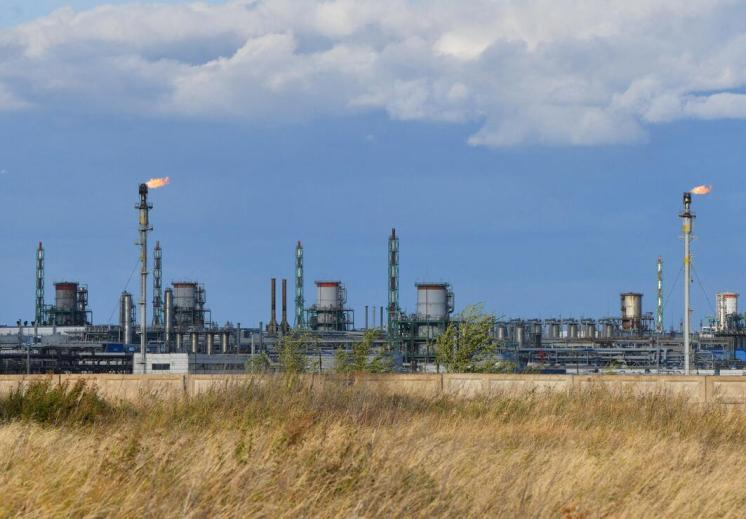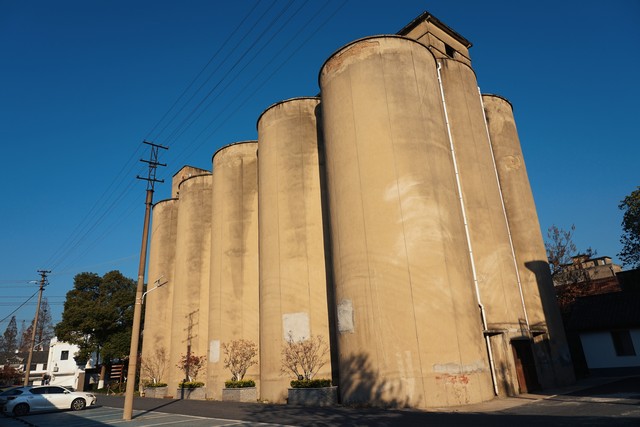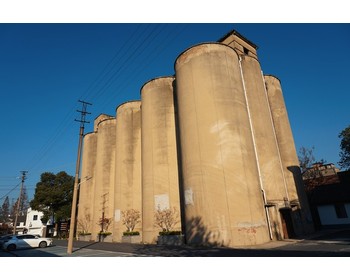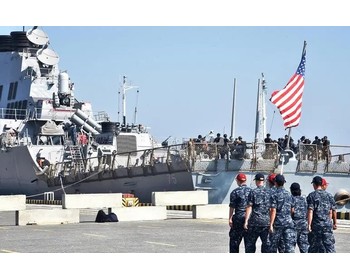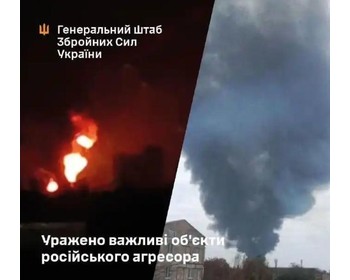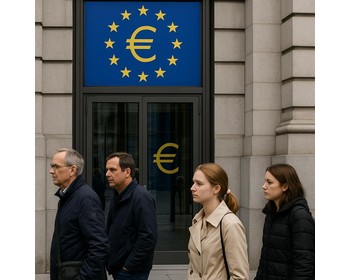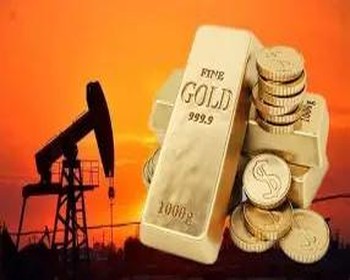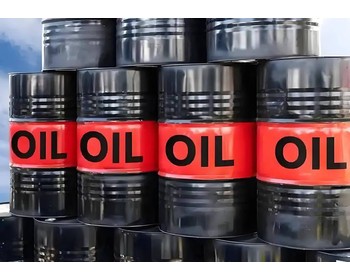Recently, a large number of French farmers who are dissatisfied with their production situation have protested to the government. Protesting farmers drove 500 tractors to occupy the highways entering and exiting Paris on the 29th, claiming to "indefinitely besiege" Paris. The protest on the 29th was initiated by the French National Federation of Agricultural Operators' Trade Unions and the "Young Farmers" organization. Farmers responding to the action have set up 8 "checkpoints" on the highway network entering and exiting Paris. The French police said that on that day, about 1000 farmers were driving 500 tractors to besiege Paris.
On January 30, 2024 local time, in Panazol, a suburb of Limoges in central western France, farmers from the rural coordination organization prepared to leave Limoges and head to Langes. Several farmer unions across the country called for protests over wages, taxes, and regulations. Farmers across Europe are protesting more and more, demanding better conditions to grow agricultural products and maintain appropriate income.
Protest against government agricultural policies, tractor "besieges" Paris
This protest was initiated by the National Federation of Trade Unions of French Agricultural Producers and the Youth Farmers Association. Farmers who responded to the action have set up 8 "checkpoints" on the highway network around Paris. Some participating vehicles also hung slogans such as "Without farmers, there is no food" and "Our demise means famine to you".
Protesters say that the agricultural policies introduced by the French government have not met the demands of farmers' unions and have failed to increase profits in food production. FNSEA President Arnold Rousseau said, "Our goal is not to interfere with or disrupt the lives of the French people, but to put pressure on the government to quickly find a solution to the crisis."
Protesters also accused the French government of "abandoning farmers" and ignoring the demands of rural residents. 52 year old farmer Christopher Rossinhol said in a media interview that the purpose of the protest was to "defend French agriculture" and "we are moving from one crisis to another."
Another protester, Bernard Durand, told French television station BFM that protesters are besieging Chartres, an hour away from Paris, as part of the "lockdown" operation. When asked if he wanted to blockade Paris, Durand replied, "This will naturally happen. Parisians will go hungry, and our goal is to make Parisians go hungry."
According to reports, farmers across France have been protesting for nearly half a month. In the eyes of French farmers, the soaring costs of energy, fertilizers, crop cultivation, and livestock farming have led to a significant decline in their income, and agricultural producers are subject to excessive regulation. As part of the energy transition policy, the French government plans to gradually eliminate diesel tax breaks for farmers, which has also raised concerns among farmers.
European market "dysregulation", Macron "swords" Ukraine
French President Macron stated on the 30th that importing Ukrainian agricultural products is causing "imbalance" in the European market, and France hopes that the European Union can take "clear measures" against importing Ukrainian agricultural products.
Macron, who is currently visiting Sweden, said at a press conference held in Stockholm that he hopes the European Union will take "clear measures" against imported agricultural products such as grains and chicken from Ukraine, as the European market is experiencing some imbalances. On February 1, he will meet with European Commission President von der Leyen to discuss this issue and other EU policies and regulations that put pressure on French farmers.
According to French media reports, after the escalation of the crisis in Ukraine, the European Union has waived tariffs on some agricultural products in order to support Ukraine. Due to the lower agricultural production costs in Ukraine compared to the European Union, coupled with the price advantage brought by agricultural tariff preferences, the profit margins of local farmers in France have been compressed.
The real estate industry may add another spark to the French government
In addition to farmers protesting vigorously, housing stakeholders are also seeking public authorities to listen. The Housing Alliance is composed of more than ten federations, including social housing management organizations, developers, construction professionals, real estate brokerage agencies, notary institutions, etc. The alliance elaborated on the measures required of the government to overcome an almost historic crisis.
The report states that representatives from multiple associations have issued threats. For example, Olivier Sallon, the President of the French Construction Association, promised that "we will go further.". Pascal Blanche, Chairman of the French Federation of Real Estate Developers, said, "We will not let ourselves go.". Boris Vienner, President of the National Federation of French Notary Employers, guarantees that "we will continue in any way.". The President of the French Social Housing Union, Emmanuel Coase, also expressed the anger of the social housing management agency, "I don't want to negotiate, nor do I want a collective meeting. This is the last chance."
The alliance currently has no plans to take concrete action and is waiting for a policy speech by French Prime Minister Gabriel Attar and the upcoming appointment of a minister or state secretary dedicated to housing affairs. However, the alliance has planned to take action at the regional level, which will also promote nationwide action. They stated that in addition to saving jobs and positions in the real estate industry and related industry chains, it is also necessary to defend the interests of all French people and the demand for decent housing for French families. The demand for social housing among French households has just reached a historic high, with 2.6 million households waiting to be allocated.
Frequent demonstrations or spillover effects of the Russia-Ukraine conflict
The French Prime Minister stated in an interview with French television that the number of protesting farmers has increased from 9000 on January 29th to 10000. They demanded that farmers not approach the city center of Paris and not the Langes market, but in reality, they are approaching. The demonstrations by French farmers are further intensifying, and France has mobilized nearly 10000 police officers to prepare for the response. Why is it close to the "Langes Market" because it is known as the "stomach of Parisians" and is the largest agricultural wholesale market in the capital city of Paris and even Europe. A large amount of agricultural products are wholesale and sold here, not only supplied to Paris, but also transported to various places. Farmers earn low prices, but here they sell at high prices, which is an important reason why they are approaching here. These are all farmers in France, not ordinary small farmers. It's winter break now, and the weather is cold and the earth is freezing. They have nothing to do. They have plenty of time and naturally have money to spend with the government. Strive for the maximum benefit.
The Russia Ukraine crisis and the high prices of various agricultural inputs have already affected agricultural costs, with the most prominent being fertilizers and diesel. Fertilizer, which means natural gas prices are soaring, is it possible that the price of liquefied natural gas in the United States is still lower than before the Russia Ukraine crisis, despite the low natural gas prices in Europe. Diesel, needless to say, is mostly mechanized and consumes fuel everywhere. These farmers have hundreds and thousands of hectares of land in their hands and are very sensitive to these costs.
In addition, there are also opposing restrictions on irrigation water use, environmental protection, and reducing subsidies. In terms of water use, this is also very sensitive. In recent years, Europe has been experiencing high temperatures and droughts in summer, and crops require a lot of irrigation. If irrigation is reduced, farmers will suffer heavy losses.
The spillover of the Russia Ukraine crisis not only has an impact on European governments and industries, but also on agriculture. Poland, Slovakia, and Hungary around Ukraine have already started, while Germany and France have been causing a lot of uproar during this period. The next step is definitely for more countries to take action.

